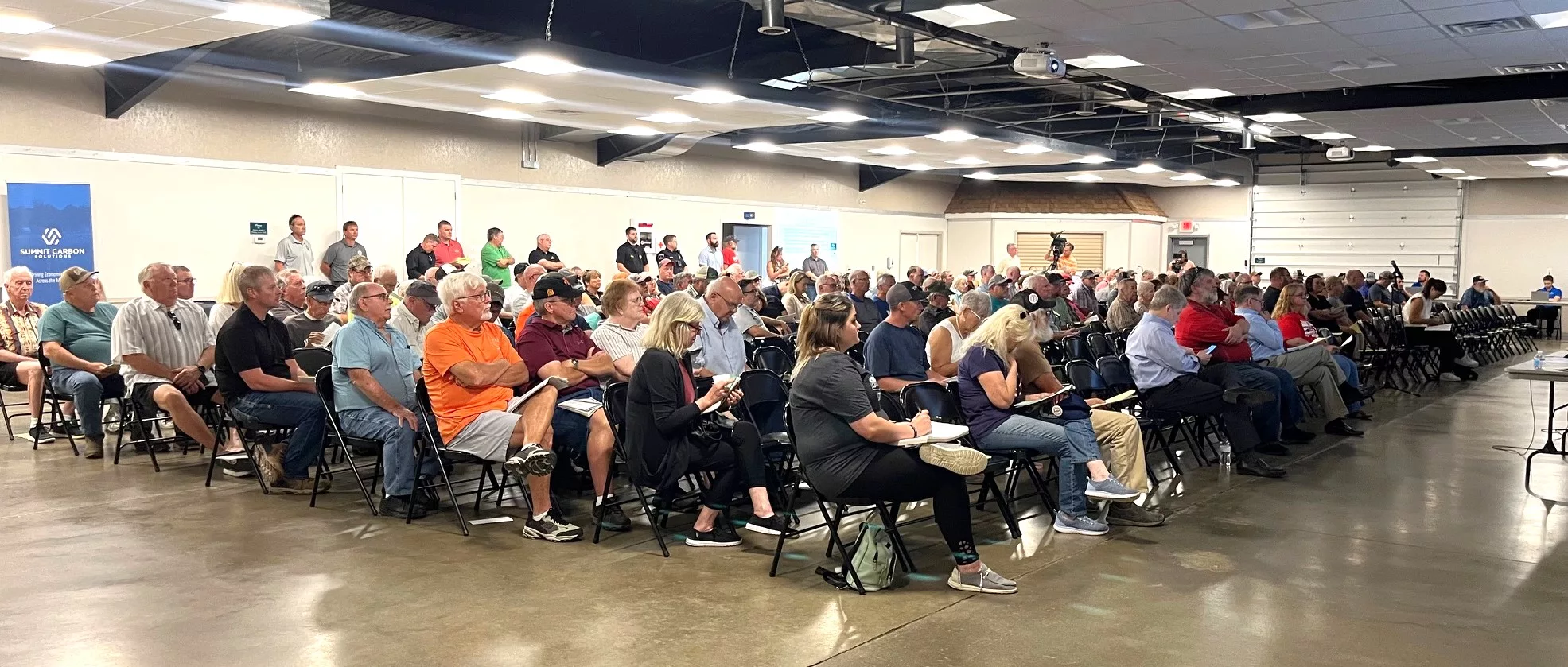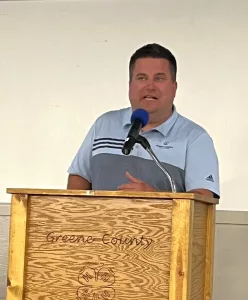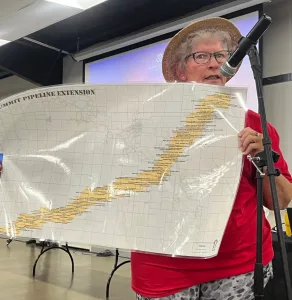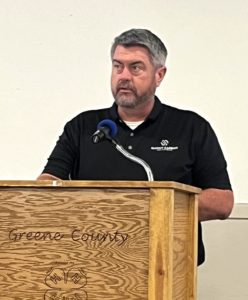
Over 150 people attended the over 2.5 hour initial informational meeting in Jefferson Wednesday about the second phase to an underground pipeline.
The Iowa Utilities Commission (IUC) was co-hosting the meeting with Summit Carbon Solutions that is looking to build an additional 26.9 miles of underground pipeline to capture carbon emissions from ethanol plants, pressurize the carbon dioxide into a liquid and transport it by an underground pipeline to an underground storage facility in North Dakota.

Summit Vice President of Government Affairs Jake Ketzner said they have 57 ethanol plants across five Midwest states, including Iowa, Minnesota, Nebraska, South and North Dakota, that are a part of the project. The local ethanol plants are Louis Dreyfus in Grand Junction, which was part of phase one that was given permit approval by the IUC pending certain conditions being met, and POET Biorefining in Coon Rapids, which is part of the second phase.
Ketzner pointed out that the reason why Summit is looking to do this is for several reasons, including enhancing the long term profitability of ethanol by keeping ethanol competitive in the markets and using it for Sustainable Aviation Fuel, among others. He talked Summit making a direct economic impact to Greene County is paying annual property taxes of $1,759,000.Ketzner said $824,000 would go to the two school districts in the county, a total of $78,000 to the community college, $26,000 to the impacted townships and $831,000 to the county ’s general fund.

Iowa Project Manager Kylie Lange said 38 Iowa counties are included in the entire project, with 23 counties for phase two, and will carry an eight inch underground pipeline. She explained other details including the process of how construction and laying the pipeline would work on the easements that Summit would look to get from landowners voluntarily.
JD Myers with Summit reviewed the landowner’s rights and protections. He said they look to provide compensation to the landowner based on fair market value in the county. This includes Summit paying over three years of crop loss following construction, with 100 percent for the first year, 80 percent the second year and 60 percent the third year. They will continue to provide compensation if the landowner continues to have crop loss due to construction that occurred for the life of the pipeline.
Finally, the Senior Director of Health, Safety, Security and Environmental for Summit Dave Daum spoke about how safe carbon pipelines are considered to be as a transportation vehicle and how those are regulated nationally, including there never being a fatality in the over 5,300 miles of existing carbon pipelines across the country.

“Pipeline transportation is the safest mode of transportation, safer than trucks, rails and ships, and CO2 pipelines are the safest of all the pipeline types. CO2 pipelines are regulated by the Pipeline Hazardous Material and Safety Administration for the design, construction, and operation of the pipeline
A lengthy question and answer period took place where close to 15 people voiced their concerns, made comments, and asked questions of Summit and the IUC. Lots of concerns were about the safety of the project, as well as eminent domain, insurance coverage for property owners, response plans if there is a rupture, and other areas of concern. One landowner that is in the second phase of the project Kim Bendickson spoke against the use of eminent domain and described another reason she is against the project.
“It’s my home. I am in that purple line so it affects me greatly. When I have Thanksgiving, when 50 people are over, are they, do I stop having Thanksgiving because it (the pipeline) might burst? I’m in the ‘kill zone’ because it’s right next to me. It’s like in my front yard.”
Representatives with the IUC told the crowd that only written comments and objections that are filed under the docket for this project will be considered by the IUC before a permit is approved or denied. Summit can also start negotiating with impacted landowners for easement agreements, following the initial informational meeting that was held Wednesday. Summit has also scheduled an open house on November 7th from 7-9am in Jefferson at the Greene County Extension Office to review the safety measures around CO2 transportation. Click the link below to view the documents and submit comments on the docket for Greene and Guthrie County.

